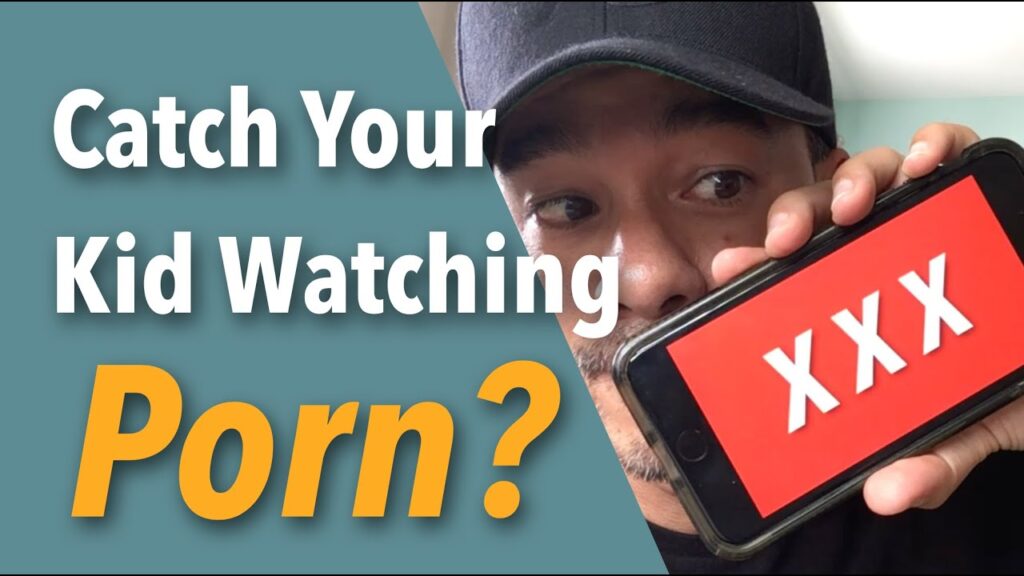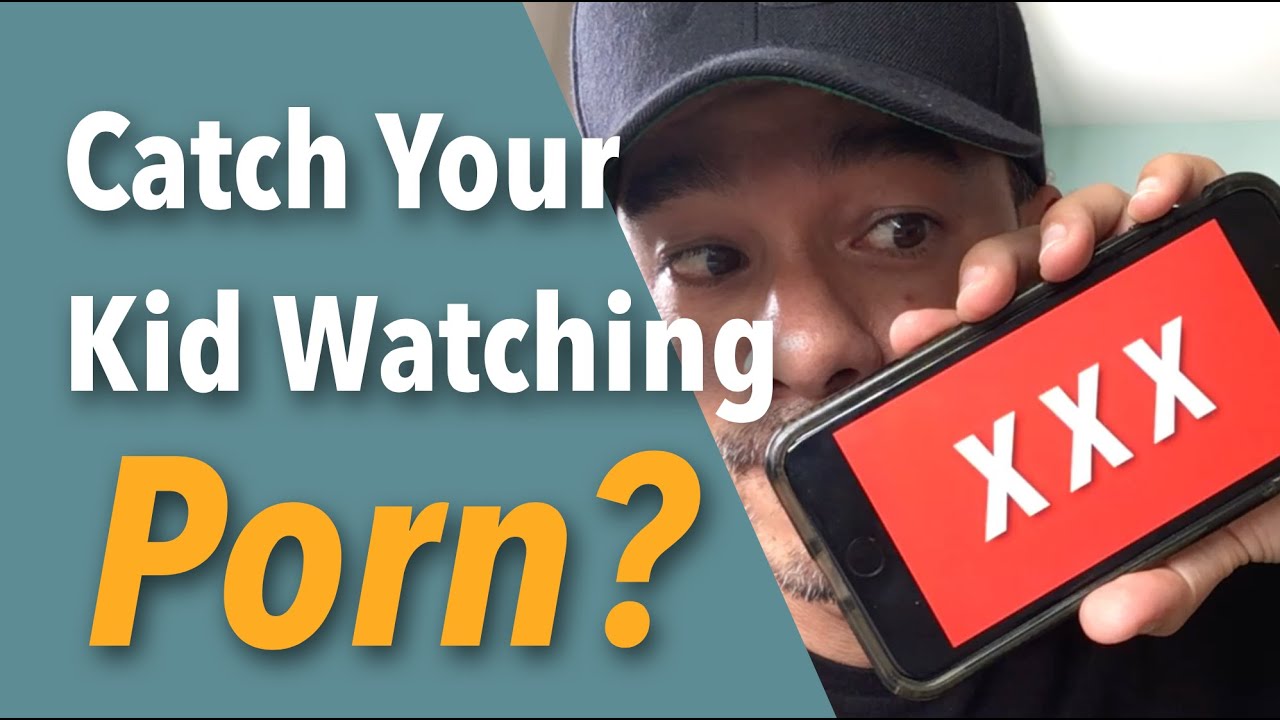
Caught Son Watching Porn: A Parent’s Guide to Understanding and Addressing the Issue
Discovering that your son has been watching pornography can be a distressing experience for any parent. The initial reaction might range from shock and disappointment to anger and confusion. However, it’s crucial to approach the situation with a calm and understanding demeanor. This guide aims to provide parents with a framework for understanding why their son might be watching porn, the potential impact it can have, and how to address the issue constructively. The focus is on fostering open communication, setting healthy boundaries, and promoting responsible online behavior. Finding out you’ve caught son watching porn is just the first step; what you do next is what truly matters.
Understanding the Prevalence and Normalcy
In today’s digital age, access to pornography is easier than ever. The internet has made it readily available to individuals of all ages, including teenagers and young adults. It’s important to acknowledge that caught son watching porn is not an uncommon occurrence. Many young people, driven by curiosity, peer pressure, or simply the ease of access, will experiment with pornography at some point in their lives. Understanding this prevalence can help parents approach the situation with less judgment and more empathy. However, while experimentation may be common, it’s essential to address potential concerns related to excessive consumption or exposure to harmful content.
Why Your Son Might Be Watching Porn
There are numerous reasons why your son might be watching porn, and it’s rarely as simple as a single explanation. Some common factors include:
- Curiosity: Exploring sexuality and understanding one’s own body is a natural part of adolescence. Pornography can seem like a readily available source of information, albeit often inaccurate and unrealistic.
- Peer Pressure: Social influences and the desire to fit in can lead young people to engage in activities they might not otherwise consider.
- Boredom or Stress Relief: Pornography can be used as a temporary escape from boredom, stress, or anxiety.
- Lack of Accurate Sex Education: If your son hasn’t received comprehensive and accurate sex education, he may turn to pornography as a primary source of information, leading to misconceptions and unrealistic expectations.
- Body Image Issues: Exposure to idealized and often unattainable body types in pornography can contribute to body image issues and insecurities.
Potential Impacts of Pornography Consumption
While occasional and responsible consumption of pornography may not necessarily be harmful, excessive or problematic use can have several negative impacts. It’s essential to be aware of these potential consequences when you’ve caught son watching porn to better understand the scope of the issue and how to address it effectively.
Psychological and Emotional Effects
Frequent pornography consumption can contribute to:
- Unrealistic Expectations of Sex: Pornography often portrays unrealistic scenarios, body types, and performances, which can lead to disappointment and dissatisfaction in real-life relationships.
- Body Image Issues: As mentioned earlier, exposure to idealized body types can contribute to insecurities and negative self-perception.
- Addiction: Pornography can be addictive, leading to compulsive behavior and difficulty controlling consumption.
- Decreased Empathy: Some studies suggest that excessive pornography consumption can desensitize individuals to violence and exploitation, potentially leading to decreased empathy towards others.
- Relationship Problems: Unrealistic expectations and a focus on instant gratification can negatively impact intimate relationships.
Behavioral Effects
Problematic pornography use can also manifest in behavioral changes, such as:
- Social Isolation: Spending excessive time consuming pornography can lead to social isolation and withdrawal from real-life interactions.
- Difficulty Focusing: Addiction to pornography can impair concentration and focus, affecting academic or professional performance.
- Impulsive Behavior: The desire to consume pornography can lead to impulsive decisions and risky behaviors.
- Secrecy and Deception: Individuals struggling with pornography addiction may become secretive and deceptive about their behavior.
How to Address the Situation Constructively
When you’ve caught son watching porn, your reaction is crucial. Approaching the situation with anger or judgment can shut down communication and make it more difficult to address the underlying issues. Instead, focus on creating a safe and open environment for discussion.
Initiate an Open and Honest Conversation
The first step is to have an open and honest conversation with your son. Choose a time and place where you can both talk privately and without distractions. Start by expressing your concern and explaining why you wanted to talk to him. Avoid accusatory language and focus on expressing your feelings in a calm and respectful manner. For example, you could say, “I’m concerned because I found out you’ve been watching pornography, and I want to understand why and how it’s affecting you.”
Listen Actively and Empathetically
During the conversation, listen actively to what your son has to say. Try to understand his perspective and motivations without judgment. Ask open-ended questions to encourage him to share his thoughts and feelings. Show empathy and validate his emotions, even if you don’t agree with his behavior. Let him know that you’re there to support him and help him navigate this issue.
Educate About Healthy Sexuality and Relationships
Use this as an opportunity to educate your son about healthy sexuality, relationships, and the potential harms of pornography. Provide accurate information about sex, consent, and healthy relationship dynamics. Discuss the unrealistic portrayals and potential negative impacts of pornography. Encourage him to seek out reliable sources of information, such as trusted adults, educators, or reputable websites. [See also: Comprehensive Sex Education Resources]
Set Clear Boundaries and Expectations
Establish clear boundaries and expectations regarding internet use and access to pornography. Discuss the importance of responsible online behavior and the potential consequences of violating these boundaries. Consider implementing parental controls or monitoring software to help enforce these boundaries. However, be transparent about your monitoring efforts and explain why you’re doing it. The goal is to promote responsible behavior, not to spy on your son. If you’ve caught son watching porn, it might be time to revisit these boundaries.
Encourage Healthy Alternatives
Help your son find healthy alternatives to pornography, such as engaging in hobbies, sports, or spending time with friends and family. Encourage him to develop healthy coping mechanisms for stress and anxiety. Promote positive self-esteem and body image. Help him understand the importance of real-life connections and relationships. Finding alternatives is key after you’ve caught son watching porn.
Seek Professional Help If Needed
If you’re concerned about your son’s pornography use or if he’s exhibiting signs of addiction or other mental health issues, don’t hesitate to seek professional help. A therapist or counselor can provide support and guidance to both you and your son. They can help him address underlying issues, develop healthy coping mechanisms, and break free from problematic pornography use. Knowing when to seek help is vital when you’ve caught son watching porn and don’t know how to proceed.
Long-Term Strategies for Promoting Healthy Online Behavior
Addressing the issue of caught son watching porn is not a one-time event. It requires ongoing effort and a commitment to promoting healthy online behavior in the long term. Here are some strategies to consider:
Maintain Open Communication
Continue to foster open communication with your son about sexuality, relationships, and online behavior. Create a safe space where he feels comfortable coming to you with questions or concerns. Regularly check in with him and ask how he’s doing. Let him know that you’re always there to support him.
Model Healthy Online Behavior
Be a role model for healthy online behavior. Show your son how to use the internet responsibly and ethically. Be mindful of your own online habits and the content you consume. Avoid engaging in online activities that you wouldn’t want your son to emulate. Modeling healthy behavior is crucial, especially after you’ve caught son watching porn.
Promote Media Literacy
Teach your son how to critically evaluate online content and identify misinformation or harmful content. Help him understand the difference between reality and fantasy, especially in the context of pornography. Encourage him to question the messages he’s receiving and to think critically about the sources of information he’s consuming. Building media literacy skills is essential to prevent further issues after you’ve caught son watching porn.
Stay Informed About Online Trends
Stay informed about the latest online trends and technologies. Understand the risks and challenges that young people face in the digital world. Be aware of the platforms and apps that your son is using. This will help you stay one step ahead and provide informed guidance and support. This is particularly important after you’ve caught son watching porn, as you need to understand the environment where it happened.
Reinforce Values and Ethics
Continuously reinforce your family’s values and ethics. Discuss the importance of respect, empathy, and responsible behavior. Help your son develop a strong moral compass that will guide his decisions, both online and offline. Instilling strong values is vital after you’ve caught son watching porn.
Conclusion
Discovering that you’ve caught son watching porn can be a challenging experience, but it’s an opportunity to open a dialogue about healthy sexuality, responsible online behavior, and the importance of real-life connections. By approaching the situation with understanding, empathy, and a commitment to open communication, you can help your son navigate the complexities of the digital world and develop healthy habits that will serve him well throughout his life. Remember that seeking professional help is always an option if you’re struggling to address the issue on your own. Ultimately, the goal is to foster a healthy and supportive relationship with your son, where he feels comfortable coming to you with any questions or concerns.

